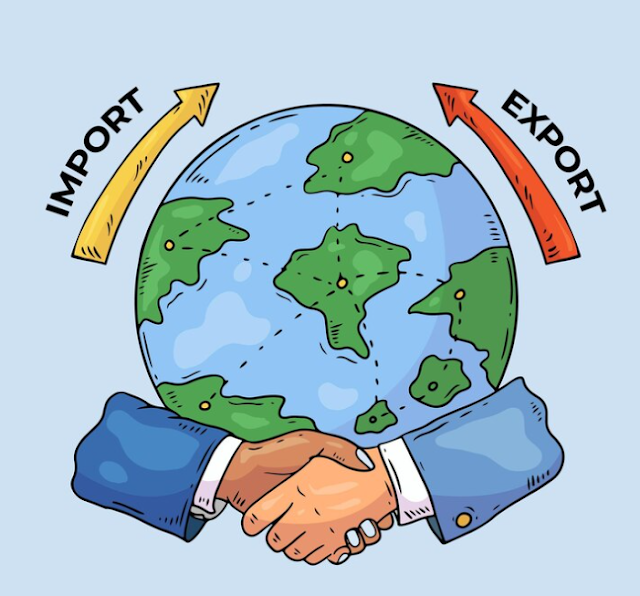What is the free trade agreement between India and the UK?
After more than three years of discussions, India and the UK inked a historic Free Tradet (FTA) on May 6, 2025. This deal, which aims to increase trade, investment, and cooperation across a number of areas, is a significant step in fortifying economic connections between the two countries.
👉The FTA with the UK is a modern, comprehensive, and landmark agreement that seeks to achieve deep economic integration along with trade liberalization and tariff concessions.
👉The FTA ensures comprehensive market access for goods across all sectors, covering all of India's export interests. The removal of tariffs on nearly 100% of the trade value, or 99% of the tariff lines, will benefit India and present enormous prospects for growing bilateral trade between the UK and India.
👉In addition to opening up export opportunities for industries like textiles, marine products, leather, footwear, sports goods and toys, gems and jewelry, and other significant industries like engineering goods, auto parts and engines, and organic chemicals, the FTA has a positive effect on manufacturing across labor- and technology-intensive sectors. In comparison to other nations, this will significantly increase the competitiveness of Indian goods in the UK.
👉India's job situation will improve significantly as a result of the FTA.
👉India will gain access to new possibilities and jobs thanks to the UK's most ambitious free trade agreements in areas like IT/ITes, financial services, professional services, other business services, and education.
👉Professionals such as contract service providers, business travelers, investors, intra-corporate transferees, their partners and dependent children, and independent professionals including yoga instructors, musicians, and chefs can travel more easily thanks to the FTA.
👉The UK, a significant worldwide hub for digitally delivered services because of its robust financial and professional services sectors and cutting-edge digital infrastructure, would present countless chances for young Indians with ability and aptitude.
👉India has made major promises to Indian service providers on digitally delivered services, particularly in the areas of professional services like engineering and architecture, computer-related services, and telecommunications.
👉For a duration of three years, Indian workers and their employers are exempt from paying social security contributions in the UK under the Double Contribution Convention. This will result in substantial financial benefits for Indian service providers and increase their competitiveness in the UK market, which will benefit many Indians employed in the UK and open up new job opportunities.
👉In order to guarantee the free flow of products and services and to prevent unwarranted limitations on India's exports, India has made sure that non-tariff obstacles are appropriately addressed.
👉In line with India's own emphasis on domestic reforms to improve the ease of doing business, the FTA aims to advance sound regulatory procedures and increase transparency.
👉India and the UK, two prominent democracies and centers of global innovation, reaffirm their dedication to advancing economic cooperation and collaborating to tackle global issues. The India-UK Free Trade Agreement establishes a new standard for ambitious, equitable, and cutting-edge trade accords globally.
Tariff Reductions and Market Access
Significant tariff reductions are part of the FTA, which will especially help India's labor-intensive industries like textiles, leather goods, and footwear. About 99% of Indian goods by value will no longer be subject to tariffs thanks to an agreement reached by the UK. The deal also tackles non-tariff obstacles that have previously hampered Indian agricultural exports, such as certification, testing, and pre-shipment inspections.
Enhanced Services-Trade
For Indian service industries like IT/ITES, healthcare, education, and audio-visual services, the agreement expands market access. In order to give Indian professionals additional chances in the UK,
market, it seeks to establish a more liberal, facilitative, and competitive services regime.
Investment and Intellectual Property Rights
The FTA improves intellectual property rights and has provisions for a Bilateral Investment Treaty (BIT). It is anticipated that these actions will safeguard investors' interests and promote investment flows between the two nations.
Social Security Agreement
The planned social security agreement, a key component of the FTA, intends to relieve Indian professionals employed in the UK of the double contribution burden. With this arrangement, Indian workers would not have to pay social security taxes in both nations at the same time.
Economic Impact and Future Prospects
The India-UK FTA is projected to double bilateral trade to $100 billion by 2030. It is expected to boost the UK's GDP by nearly 5 billion euros annually and increase household incomes by 2 billion euros per year. The agreement is also anticipated to create approximately 1,200 jobs in Scotland alone, particularly benefiting sectors like Scotch whisky exports.
challenges and Areas for Further Negotiation
There are still some controversial concerns in spite of the advancements. There are still negotiations going on in areas like the finalization of the social security agreement and rules of origin, which establish the nation of origin of a product. To guarantee the FTA's complete implementation and efficacy, these issues must be resolved.
Strategic Importance
The FTA is strategically significant to both nations. As a permanent member of the UN Security Council and an important global partner, it provides India with improved market access to the UK. The deal gives the UK access to India's quickly expanding economy and opens up new trade and investment opportunities.











